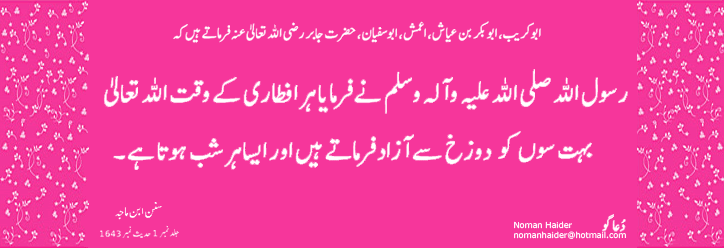Dhanteras marks the first day of five-days-long Diwali Festival. Dhanteras Festival,
also known as Dhantrayodashi or Dhanwantari Triodasi, falls on the
auspicious thirteenth lunar day of Krishna Paksha in the Hindu month of
Kartik (October/November). In the word Dhanteras, "Dhan" stands for
wealth. On Dhanteras Goddess Laxmi is worshiped to provide prosperity
and well being. Hence Dhan Teras holds a lot more significance for the
business community.
It takes place two days before Diwali to honor Dhanvantari, an incarnation of Vishnu.
Dhanteras is observed on the 13th day of Krishna Paksh in the month of Karthik. This is also known as Yamadeep. It is said that after the Sagar Manthan between the Devtaas and Asuras, Dhanvantari came out of the sea with an Amrit Kalash. That is why, Dhanteras is also known as Dhanvantari Jayanti.
It takes place two days before Diwali to honor Dhanvantari, an incarnation of Vishnu.
Dhanteras is observed on the 13th day of Krishna Paksh in the month of Karthik. This is also known as Yamadeep. It is said that after the Sagar Manthan between the Devtaas and Asuras, Dhanvantari came out of the sea with an Amrit Kalash. That is why, Dhanteras is also known as Dhanvantari Jayanti.
On
this day, we pray for good health and wealth for the family. Decorated
clay idols and photos of Shri Ganesh and Shri Lakshmi are bought from
the market. While buying the idols it's kept in mind that the trunk of
Ganeshji is turned towards the right as it is considered more
auspicious. These idols are worshiped on the day of Deepavali.
Silver articles are bought for the house and Iron, Copper or Brass utensils are boughtfor the kitchen.
Silver articles are bought for the house and Iron, Copper or Brass utensils are boughtfor the kitchen.
 On
Dhanteras we perform puja and pray for the good health and wealth of
the family. Decorated clay idols or photos of Shri Ganesh and Shri
Lakshmi are bought from the market and these idols are worshiped on the
day of Deepavali.
On
Dhanteras we perform puja and pray for the good health and wealth of
the family. Decorated clay idols or photos of Shri Ganesh and Shri
Lakshmi are bought from the market and these idols are worshiped on the
day of Deepavali.Preparation for the Puja
One Deepak made out of atta/clay with 4 wicks
Wicks for the Deepak oil/ghee, matchstick
One shell with a hole
Flowers, roli, chawal
Water in panchpatra and a spoon
Some money
Pata & Aasan
Kheel & batasha
Dhoop (sambrani) & dhoop daan
Chopda with roli, chawal for applying tikka
Suhali, petha (shaker para)
Vidhi ( Method) of Performing the Puja
In the evening, after seeing the star, the women of the house get together for puja. In some houses both men & women do the puja.
The 4 wick Deepak is placed on the pata. Oil/ghee is put in the Deepak with the Four Wicks.
The Cowrie shell is placed on the Deepak.
The Deepak is lit. This is referred as Yamadeep. This Deepak pleases Yamaraj and the pitars/departed ancestors of the family.
Some water from the panchpatra is sprinkled around the Deepak, puja is performed with roli, chawal andmoney.
Four suhali and little pethas are offered.
Some people offer kheel and batasha also Dhoop is lit.
Women performing the puja go around the Deepak four times & do pranam.
The eldest woman of the family or unmarried girl of the house puts tilak from the roli in the chopda to everyone sitting for the puja.
One male staff member of the house, covers his head with a cloth, takes the lit Deepak and keeps it outside on the right side of the main gate. This person is given dakshina.
After puja, the family members do pranam to all the elder people to them.
Dhanteras Legengd and Rituls
Legend
The Yama legend-
There are two legends associated with this festival. The first one goes
like there was a 16 year old son of King Hima whose horoscope predicted
his early death by a snake-bite on the fourth day of his wedding.
The
newly-wed wife of the prince was cunning. She did not allow him to
sleep on the fourth day of the wedding and she laid out all her
ornaments accompanied with heaps of gold and silver coins at the
entrance of the sleeping chamber and lit lamps all over the place. Then
she started singing melodious songs to keep her husband from falling
asleep.
When Yamraj (Death God) came to take the prince in the guise of snake, his eyes got dazzled and he was temporarily blinded by the sharp light of lamps and jewellery. The serpent was not able to enter the chamber till morning and therefore, he climbed on top of the gold coin heap and sat there the entire night enjoying the songs sung by prince’s wife. In the morning, he silently went away.
This saved the young prince from his early death and since then this day is celebrated as Dhanteras or Yamadeepdaan. In few houses ladies light earthen lamps or ‘deep’ and these are kept burning throughout the night to glorify Yama (the god of Death).
When Yamraj (Death God) came to take the prince in the guise of snake, his eyes got dazzled and he was temporarily blinded by the sharp light of lamps and jewellery. The serpent was not able to enter the chamber till morning and therefore, he climbed on top of the gold coin heap and sat there the entire night enjoying the songs sung by prince’s wife. In the morning, he silently went away.
This saved the young prince from his early death and since then this day is celebrated as Dhanteras or Yamadeepdaan. In few houses ladies light earthen lamps or ‘deep’ and these are kept burning throughout the night to glorify Yama (the god of Death).
Dhanvantari myth-According to the other legend in the cosmic battle between the gods and the demons when both churned the ocean for ‘amrit’ or divine nectar, Dhanvantari – the physician of the gods and an incarnation of Vishnu – emerged carrying a pot of the elixir. So, according to this mythological tale, the word Dhanteras comes from the name Dhanvantari, the divine doctor.
Rituls
As
Dhanteras is associated with the worship of Goddess Lakshmi, people
draw small footprints with rice flour and vermilion powder throughout
the house right from the entrance (indicating the arrival of Goddess
Lakshmi). As Dhantrayodashi or Dhanteras is considered very auspicious,
people shop for gold, silver and some utensils. To celebrate the
auspicious arrival of Goddess Lakshmi, the homes of people are
illuminated by oil lamps, which are lit throughout the night. Lakshmi
Puja is also an important part of the Dhanteras celebrations. The
Lakshmi-Puja is performed at midnight. Devotional songs, in praise of
Goddess Lakshmi, are sung by the people. Goddess Lakshi is offered
naivedya of sweets, which serve as the auspicious Prasad of the Goddess.
In many parts of South India, there is a tradition of cow worship by
the farmers (on Dhanteras). For farmers, cows signify wealth and are
considered to be the incarnation of Goddess
Lakshmi
Happy Dhanteras
Kiran






























































